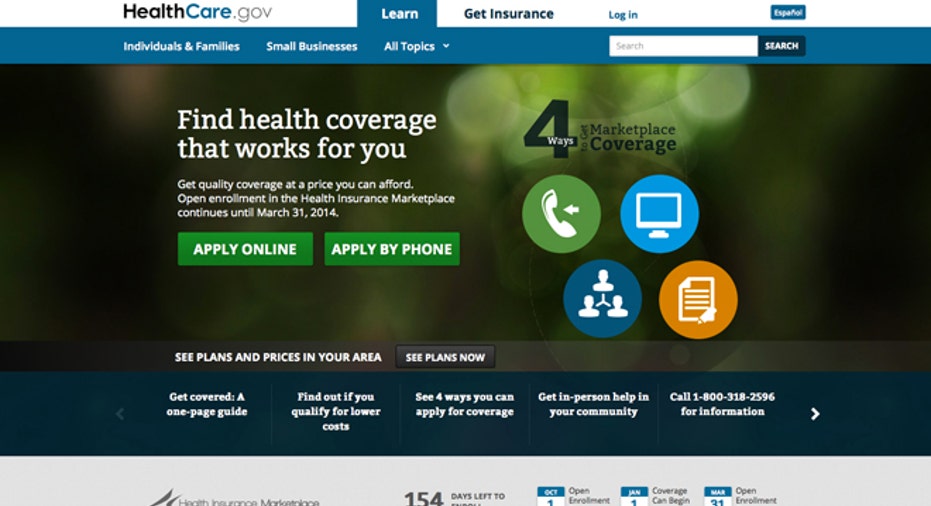House Report: ObamaCare Subsidies Via Federal Exchanges ‘Unauthorized’

The controversial subsidies offered under Affordable Care Act, which lower the cost of care for individuals and families that purchase insurance on federal and state exchanges, have been at the heart of several nationwide lawsuits since the law was signed in 2010. And now the head of the House Committee on Oversight and Government Reform is taking aim at them.
“Our oversight has concluded that IRS officials did not properly consider the plain text and legislative history of the Affordable Care Act when the agency decided to expand ObamaCare’s health insurance subsidies to individuals on the federal exchange. The IRS’ unilateral decision resulted in millions of dollars in unauthorized funding. This decision to bypass the law has created troubling uncertainty that may ultimately create significant hardship for Americans who are counting on government subsidized health care,” House Committee on Oversight and Government Reform Chairman Darrell Issa, (R-Calif.), told FOXBusiness.com in a statement.
“This issue has been decided by the U.S. District Court for the District of Columbia, which recently found that 'the IRS Rule is consistent with the text, structure, and purpose of the Affordable Care Act. Section 36B must be read as authorizing the IRS to deliver tax credits to individuals purchasing health insurance on federally-facilitated Exchanges.' We agree with this decision,” a Treasury spokesperson told FOXBusiness.com via e-mail.
As of press time, the IRS declined to comment.
The new report from the House Committee on Oversight and Government Reform and the House Committee on Ways and Means finds the joint rule from the Internal Revenue Service and Treasury Department which extended subsidy offerings to federal exchanges exceeds the agencies’ statutory authority.
Under the Affordable Care Act, states had the option to set up their own exchanges for residents to purchase insurance. If a state opted not to set up such an insurance marketplace, the federal government would step in and run its exchange. Healthcare.gov is currently operating in 34 states.
The report claims that because these states opted not to set up exchanges, the taxpayer dollars used to cover subsidies to residents on the federal exchange were “unauthorized.”
Under the ACA, every American in the country has to have insurance by the end of open enrollment period on April 1 or they will face a fine of $95 a year or 1% of their annual income. Subsidies are available for those making up to 400% of the federal poverty level, which is about $45,000 for an individual and $94,000 for a family of four.
The report claims that the IRS, and the Treasury Department did not conduct a “serious or thorough analysis of the PPACA statute, or the law’s legislative history with respect to the government’s authority to provide premium subsidies in exchanges established by the federal government.”
The subsidies are funded via the penalties collected from failing to comply with the individual and employer mandates. The employer mandate has been delayed and will kick in next year. Under that mandate of the law, every employer with at least 50 or more full-time workers has to offer them insurance or they will face a penalty of $2,000 per worker, per year, for failing to comply.
The individual mandate was upheld in a Supreme Court ruling in 2012, but that hasn’t stopped Republican lawmakers from trying to repeal the law. Lawmakers in South Carolina are considering the “Freedom of Health-care Protection Act” which is fast-tracked to pass in the Senate in a vote to come later this month, and supporters say will be signed by Gov. Nikki Haley (R). The bill outlaws state health-care exchanges and issues tax deductions to individuals to cover the penalties they will face for failing to comply with the law. South Carolina is operating on the federal health-care exchange.
And small business owners across six different states are taking on the exact issue raised in this report, claiming that because they live in states that opted not to set up exchanges, their taxpayer dollars should not go toward subsidizing care for individuals nationwide. They lost in a federal ruling last month, but have since appealed and the case is expected to reach the Supreme Court later this year.



















